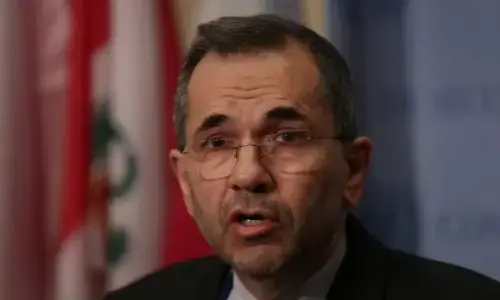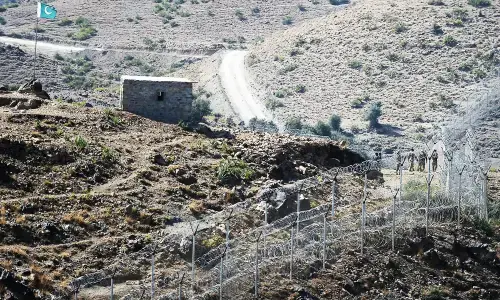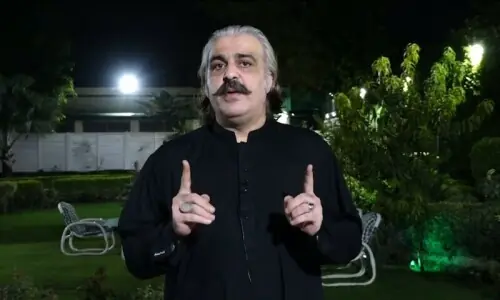DIGITAL disinformation has emerged as a formidable threat in the digital era, warping public perceptions and jeopardising fundamental democratic structures. It undermines the integrity of informed public discourse and governance, posing critical challenges to the foundational principles of truth and transparency in our interconnected societies. A subtler yet profoundly impactful fallout of digital disinformation is its utility as a tool for higher content-control, cloaking overt censorship under the guise of ‘protecting citizens from online harms’.
This pretext of safeguarding the public, or curtailing the spread of false information ‘in the public interest’, often serves as a convenient facade for targeted bans, or even blanket censorship, by both governments and social media companies. Paradoxically, censorship itself often acts as a significant catalyst for the proliferation of digital disinformation, particularly the kind that can distort democratic processes and shape public opinion. This form of control enables dominant narratives to flourish unchallenged, simultaneously silencing dissenting voices and alternative perspectives, thus skewing public perception and undermining the very essence of democratic dialogue.
A case study illustrating the impact of digital censorship on the spread of disinformation is the Israeli-Palestinian conflict. The conflict has been plagued by significant misinformation, disseminated through various channels such as misleading narratives, out-of-context imagery, and false claims across multiple platforms. Human Rights Watch has documented instances where posts advocating for Palestinian rights were either hidden or received notably diminished engagement on platforms like Instagram and Facebook. This practice, often termed ‘shadow banning’, effectively limits the visibility of pro-Palestinian voices. In my view, this silencing of pro-Palestinian voices has substantially contributed to the spread of disinformation. These actions can distort public discourse and affect how people perceive a certain conflict, potentially influencing public opinion and international policy decisions based on incomplete or biased information.
In recent months, Pakistan’s decision to suspend the social media platform X has spotlighted a critical issue: while intended to curb disinformation, such measures can paradoxically foster an environment where misinformation thrives more freely. This development offers a poignant example of how censorship, rather than containing disinformation, might actually exacerbate it.
Social media platforms like X play a crucial role in the modern public sphere. They enable the rapid dissemination of information, facilitate public engagement, and allow for the communal vetting of facts and ideas. This interactive ecosystem is pivotal in debunking falsehoods and fostering informed communities. When access to such platforms is restricted, it disrupts these processes, removing a public tool for fact verification and debate. Consequently, misinformation can migrate to less regulated and more opaque channels, such as public and private WhatsApp groups, spreading without the counterbalance of community scrutiny or expert fact-checking.
The handling of the X blockage by regulatory bodies and the government is a reminder of how misinformation is manipulated for political ends.
Journalistic fact-checking outlets, or even individual, credible journalists who regularly debunk misinformation, serve as the critical first line of defence against digital disinformation, rigorously scrutinising and debunking false narratives that permeate online spaces. They are essential in the fight against digital disinformation, considering the broad reach and real-time nature of social media platforms. They use these platforms not just to debunk false claims but also to educate the public on recognising and questioning misinformation. The suspension of X in Pakistan has significantly handicapped these efforts.
The handling of the X platform blockage by regulatory bodies and the federal government serves as a stark reminder of how misinformation is often manipulated for political ends. The sudden and unexplained blocking of the platform left both the public and the media in a state of confusion, as the Pakistan Telecommunication Authority remained tight-lipped and evasive in its communications. Even when the ban faced legal challenges in the Sindh High Court, a PTA representative confidently asserted that the platform was operational, going as far as to demonstrate its functionality on his mobile phone. It was only after sustained legal pressure that the PTA reluctantly submitted a document to the Sindh High Court, revealing a letter from the interior ministry directing the blockage of X. However, the credibility of this document is marred by discrepancies in dates and other key details.
Legal battles over the X ban are ongoing in the high courts with the interior ministry stubbornly citing online harms as the primary justification for the ban. In a report submitted to the Islamabad High Court on April 17, the interior ministry attempted to link the ban to the “misuse of the platform”, claiming it was essential for upholding security, “maintaining public order, and preserving the integrity of our nation”. The report further accused X of being a potential catalyst for “chaos and instability” and condemned its failure to address “defamatory campaigns”.
These allegations, however, overlook a critical aspect of digital and social media platforms; while they can indeed be used to spread disinformation, they also serve as crucial tools for countering and responding to such campaigns, and countering harmful disinformation. By cutting off mainstream access to X, the government has inadvertently created an environment where misinformation can thrive unopposed, particularly in less public spaces like WhatsApp groups. This restriction severely hampers the ability of fact-checkers to reach and correct public misconceptions, allowing disinformation to spread unchecked and unchallenged.
To effectively combat disinformation without resorting to heavy-handed censorship, governments should consider alternative strategies that focus on transparency, public education, and collaboration with technology platforms governed by principles of human rights, transparency and multistakeholderism. Enhancing media literacy among the populace — or ‘inoculating’ them against disinformation — can empower individuals to critically analyse and question the information they encounter.
Through such collaborations, governments can develop more nuanced strategies that address disinformation while respecting freedom of expression. Inversely, when official channels suppress communication, people may turn to less credible sources, potentially increasing their exposure to disinformation.
The writer is a media strategist and trainer, and founder of Media Matters for Democracy, a media development organisation.
Published in Dawn, April 27th, 2024
































